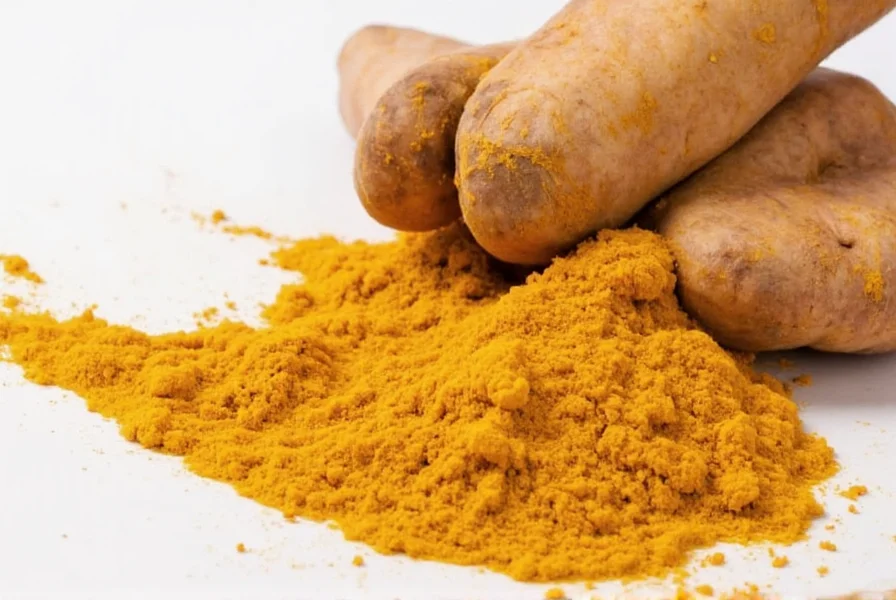Curcumin, the active compound in turmeric, has been studied for its effects on digestive health. Research shows that while moderate dietary use of turmeric (about 1-3 grams daily as part of cooking) rarely causes significant digestive changes, concentrated forms can affect gut motility. A 2013 study published in the Journal of Medicinal Food found that high-dose curcumin supplements (over 1,000 mg daily) were associated with mild digestive symptoms including increased bowel frequency in approximately 8% of participants.
How Turmeric Affects Digestion
Turmeric influences digestive processes through several mechanisms. First, it stimulates bile production in the gallbladder, which helps break down fats and can accelerate intestinal transit time. Second, curcumin has anti-inflammatory properties that may improve overall gut health but can temporarily alter bowel habits as the digestive system adjusts.
"Turmeric acts as a cholagogue, meaning it promotes the discharge of bile from the system," explains Dr. Elena Rodriguez, a gastroenterologist at the Center for Integrative Medicine. "This natural effect can lead to more regular bowel movements, which some people might interpret as 'making you poop' when they first start consuming it regularly."

Factors Influencing Turmeric's Digestive Effects
Not everyone experiences digestive changes from turmeric. Several factors determine whether you might notice effects on your bowel movements:
| Factor | Effect on Digestion | Typical Response |
|---|---|---|
| Dosage | Higher doses more likely to affect bowels | Supplements (500mg+) may cause changes; culinary use rarely does |
| Form consumed | Pure curcumin vs. whole turmeric | Extracts more potent than culinary turmeric |
| Individual sensitivity | Varies by digestive system | Those with IBS may be more sensitive |
| Consumption with food | Taken with meals reduces effects | Less likely to cause digestive changes |
Research on Turmeric and Bowel Movements
A comprehensive review of curcumin studies published in Nutrients in 2020 analyzed 12 clinical trials involving over 1,000 participants. The review concluded that while turmeric is generally well-tolerated, doses exceeding 1,000 mg of curcumin daily were associated with mild gastrointestinal symptoms in 5-10% of users, including:
- Loose stools (most common)
- Increased bowel frequency
- Occasional abdominal discomfort
Importantly, these effects were typically temporary, resolving within a few days as the body adjusted. The study noted that combining turmeric with piperine (from black pepper), which is common in supplements to enhance absorption, may increase the likelihood of digestive effects.
When Turmeric Might Cause Digestive Changes
Certain situations make digestive effects from turmeric more likely:
- Starting supplementation - Your body may need time to adjust to higher curcumin levels
- High-dose regimens - Therapeutic doses (typically 500-2,000 mg daily) increase likelihood of effects
- Pre-existing digestive conditions - Those with IBS or sensitive digestion may notice effects at lower doses
- Taking on an empty stomach - Consuming turmeric without food amplifies digestive stimulation

Managing Turmeric's Digestive Effects
If you're experiencing more frequent bowel movements after adding turmeric to your routine, consider these evidence-based approaches:
- Reduce your dosage - Start with smaller amounts (250-500 mg) and gradually increase
- Take with food - Consuming turmeric with meals significantly reduces digestive effects
- Choose quality formulations - Some supplements include digestive enzymes to minimize side effects
- Stay hydrated - Increased bowel activity requires adequate fluid intake
- Monitor your response - Keep a simple journal of dosage and digestive changes
Most people find that digestive adjustments to turmeric are temporary. A 2019 study in the European Journal of Drug Metabolism and Pharmacokinetics followed participants taking curcumin for 8 weeks and found that initial digestive symptoms resolved for 85% of participants within 10-14 days.
When to Consult a Healthcare Provider
While mild digestive changes from turmeric are usually harmless, consult a healthcare provider if you experience:
- Persistent diarrhea lasting more than 3-4 days
- Severe abdominal pain or cramping
- Blood in stool
- Symptoms that interfere with daily activities
- Dehydration signs (excessive thirst, reduced urination, dizziness)
These could indicate an underlying condition unrelated to turmeric consumption. Individuals with gallbladder issues should consult their doctor before using turmeric supplements, as increased bile production could exacerbate certain conditions.
Practical Tips for Turmeric Consumption
Based on current research, here are evidence-based recommendations for enjoying turmeric without unwanted digestive effects:
- Start with culinary use (1/4-1/2 teaspoon in cooking) before trying supplements
- Never exceed recommended supplement dosages (typically 500-1,000 mg curcumin daily)
- Take turmeric supplements with your largest meal of the day
- Choose formulations that include phospholipids instead of piperine if you're sensitive
- Stay consistent with timing to help your digestive system adjust
Remember that individual responses vary significantly. What causes digestive changes in one person might have no effect on another. The key is to listen to your body and adjust your turmeric intake accordingly.
Frequently Asked Questions
Can turmeric cause diarrhea at normal dietary amounts?
Turmeric rarely causes diarrhea when used in normal culinary amounts (about 1-3 grams daily as part of cooking). Digestive effects are more commonly associated with supplement doses exceeding 500 mg of curcumin daily. Most people can safely enjoy turmeric in food without significant digestive changes.
How quickly does turmeric affect bowel movements?
For those who experience digestive effects, changes typically occur within 24-48 hours of starting supplementation or significantly increasing dietary intake. The timing varies based on individual digestive sensitivity, dosage, and whether it's taken with food.
Does black pepper in turmeric supplements increase digestive effects?
Yes, piperine (from black pepper) which is often added to enhance curcumin absorption, can increase the likelihood of digestive effects. Studies suggest that formulations with piperine may cause mild gastrointestinal symptoms in sensitive individuals at lower doses than pure curcumin supplements.
Is it normal to have more frequent bowel movements when starting turmeric supplements?
Mild increases in bowel frequency during the first few days of turmeric supplementation are relatively common as your digestive system adjusts. Research shows these effects typically resolve within 1-2 weeks. If symptoms persist beyond this period or are severe, consult a healthcare provider.
Can turmeric help with constipation?
Turmeric's stimulation of bile production may help promote regular bowel movements in some individuals with occasional constipation. However, it's not a reliable treatment for chronic constipation. If you're experiencing persistent constipation, consult a healthcare provider rather than relying on turmeric as a solution.










 浙公网安备
33010002000092号
浙公网安备
33010002000092号 浙B2-20120091-4
浙B2-20120091-4